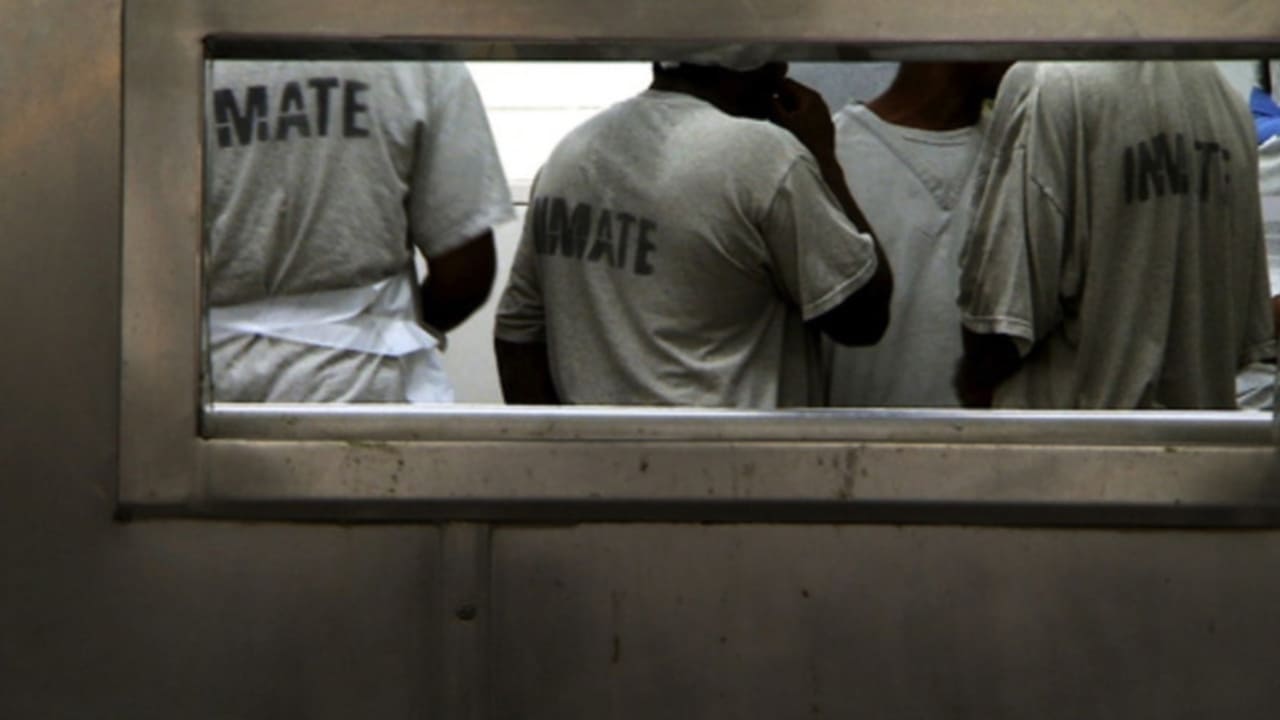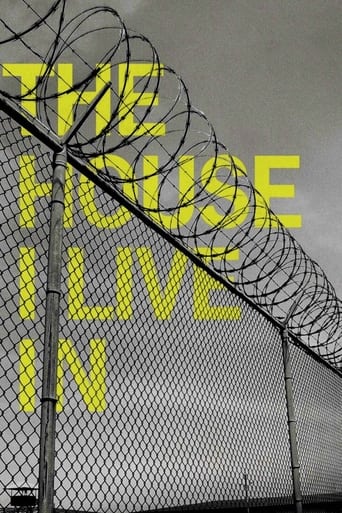



Fantastic!
I have absolutely never seen anything like this movie before. You have to see this movie.
View MoreThe storyline feels a little thin and moth-eaten in parts but this sequel is plenty of fun.
View MoreThis is a dark and sometimes deeply uncomfortable drama
View MoreIf you want to watch a film that is completely biased against the "war on drugs," then this is the film for you. The director banged his drum for two hours about how awful it is that we have mandatory minimums for drugs and so many people in jail who shouldn't be but spent exactly zero time on exploring what would happen if we eased up our drugs laws and sprung hundreds of thousands of drug dealers loose back into society. The reason is that it would not be pretty and I am quite happy having these people locked up.The movie also used several absurdly false statements by interviewees that never should have been included in the film. The first one was when one interviewee wrongly stated that one could have two prior drug convictions, have a traffic offense and then would get a mandatory life sentence under three strikes and you are out. That simply is false and it was beyond disturbing that this false statement made the final cut into the film. Another patently false statement was made by the guy who claimed that you could have $5,000 in your car, get pulled over by the police for no reason, not get charged with a crime but nonetheless lose your $5,000 to the police under civil forfeiture laws. This is beyond ridiculous and simply false. Why did this preposterous statement make it into the film??? I also had next to no sympathy for most of the inmates who were interviewed. Why should we feel sorry for the drug dealer in Vermont who is in jail and upset that he can't see his daughter he had with his girlfriend (not wife)??? If his future daughter were that important to him, he probably should have thought twice about being a drug dealer and taken a job at his local fast food restaurant. Even the Columbia professor was a disgrace. If he wants people to take him seriously, why does he wear his hair like a typical rasta? Is it surprising that he has a mystery kid who winds up being a drug dealer?
View MoreCinema and literature have explored the themes of THE HOUSE I LIVE IN many times before. If you talk about "war on drugs" you'll inevitably find that everything is related, from the kid who wants to follow the steps of the most recognized gangster in the ghetto (something similar to one of the stories in Garrone's GOMORRA) to the penal system debate (not long ago Werner Herzog touched this theme with INTO THE ABYSS). THE HOUSE I LIVE IN, documentary about the war on drugs in the United States, take us to many states, shows us the perspective of all the involved in this complex situation, from the recluse that trafficked with methamphetamines to the cop that appeared in the series COPS. Even when the documentary's duration is only 2 hours, it seems that director Eugene Jarecki had enough material for a 10-hour miniseries, so with a single viewing it may be a bit difficult to retain every one of the stories here featured. Jarecki began his project thanks to a personal issue: the African American woman that took care of him when he was a child saw her family being destroyed by drugs. The director quickly delimitates his theme and decides only to explore his country – the Mexican war on drugs, for instance, is mentioned only once, simply to conclude that the problem is much bigger in the United States. Jarecki never questions where the drugs that enter to his country come from, or why people use them – that's somewhat clear: people involved in the drug traffic or use do it "out of pain", as one of the interviewed persons remarks. So, the objective of the documentary is to find out what causes that pain. We get concise answers and thoughts, that shows an impressive brutality and at the same time contradict the final message, sort-of encouraging, of the film. That message is, by the way, illustrated with the image of an African American woman watching on her TV, with a smile, the first victory of Barack Obama back in 2008. Yes, the same woman that took care of young Jarecki. THE WIRE (2002-2008), brilliant but not very popular American series, has been described as a cop show that doesn't move fast, with tons of action and gunshots. The series' big amount of information can be a little difficult to digest at the beginning, but we are talking of an ambitious project that starts with a simple detective case and ends exploring many aspects of the American society (in Baltimore specifically), being the drug trafficking one that stands out. One of the interviewed persons with more presence in the documentary is actually David Simon, former police journalist for the Baltimore Sun and also creator of the mentioned TV series. Undoubtedly, Simon was a huge inspiration for Jarecki, and both works, THE HOUSE I LIVE IN and THE WIRE, complement each other. If you know the fiction, watching the documentary is like returning to the same places (the housing projects) and also to some situations (the cops that prefer doing quick drug-related arrests rather than working on bigger, more important cases). Another person that stands out is one historian with an expertise on Abraham Lincoln. With his look from those civil war years, this man take us by hand to give a look to the history of drugs in the United States, going till the days when the Chinese people (who were directly related with the use of opium) began to took the jobs of the white Americans. The stock footage shows us the classic American propaganda, and Jarecki finds some answers and parallelisms in the type of political speech that was used by someone like Nixon. Like I already mentioned, the principal virtue of THE HOUSE I LIVE IN is that it provide us concise answers – even a theme like the origin of the ghettos is explained better than ever. In fact, this Lincoln look-alike man is who concludes in a brutal way the war on drugs theme, and more than Jarecki's own sort-of conclusion, this is the one that will stay with us – the war on drugs is an holocaust that, unlike the other holocausts, has evolved and no longer distinguish races, only social classes. *Watched it on 16 February, 2013
View MoreWhat's really fueling this law and order hysteria and the draconian prison sentences for relatively minor, innocuous and even non-existent "crimes" is the extraordinarily profitable Prison for Profit system. What's interesting and extremely frightening is most Americans are oblivious to it. Combine this with a large number of the public being largely uneducated and on a continual sadistic hunt for scapegoats, those who profiteer on the modern day slave trade have a willing public as unwitting accomplices.It's interesting the director, Eugene Jarecki, also did "Why We Fight", one of the best documentaries to expose the crimes being committed by the blood money Military Industrial Complex. The public is also largely oblivious to that evil profiteering monster and also happily supports it to the point it thinks murdering and dying for it is a good thing. Jarecki makes some of the most important and enlightening documentaries of today. It's an alarming shame and tragedy that the predominately ignorant and not very mentally healthy general public aren't watching them, let alone able to comprehend how it hurts everyone except the bank accounts of sociopathic "business" men and women.Perhaps the common denominator is the same fuel that's driving half of the present day voters in the Presidential election: hatred and the eternal search for scapegoats. It would make an excellent documentary to tie these core driving forces together, a task I think Mr. Jarecki is capable of doing well. It probably won't make much of an impact beyond preaching to the choir but then again none of his other fine offerings have fared much better and those are still greatly appreciated by thoughtful and humane audiences.
View MoreThe House I Live In is a very informative work of advocacy that's only thinly masquerading as a documentary. It's a more reformed, nuanced version of a Michael Moore piece that has a clear point of advocacy aimed squarely at whatever practical center still exists. It doesn't hit you over the head with a message or misleading facts but squarely lets you arrive at the conclusion that the drug war has failed. It's not an anti-corporate rant with a clear villain to rally against. I left thinking that there was enough material and story there to easily fill a mini-series or a Ken Burns style documentary without getting preachy or creating fatigue.It has enlightening and entertaining moments, but there are many flaws in the storytelling. Many characters are introduced, many of which with too much or not enough background, and seem to float around their promised purpose without really landing at a point or purpose. (Given the ending theme of the work, perhaps this is intentional.)David Simon's incredibly powerful monologues bring a saving grace to moments in the film that tend to struggle, especially moments where the director awkwardly inserts himself into the film.Unlike a lot of similar works, you could probably take your Republican parents to see it without the evening being automatically ruined. Unlike almost every other advocacy piece I've seen, it achieves its goal of starting a conversation, rather than ending one.
View More